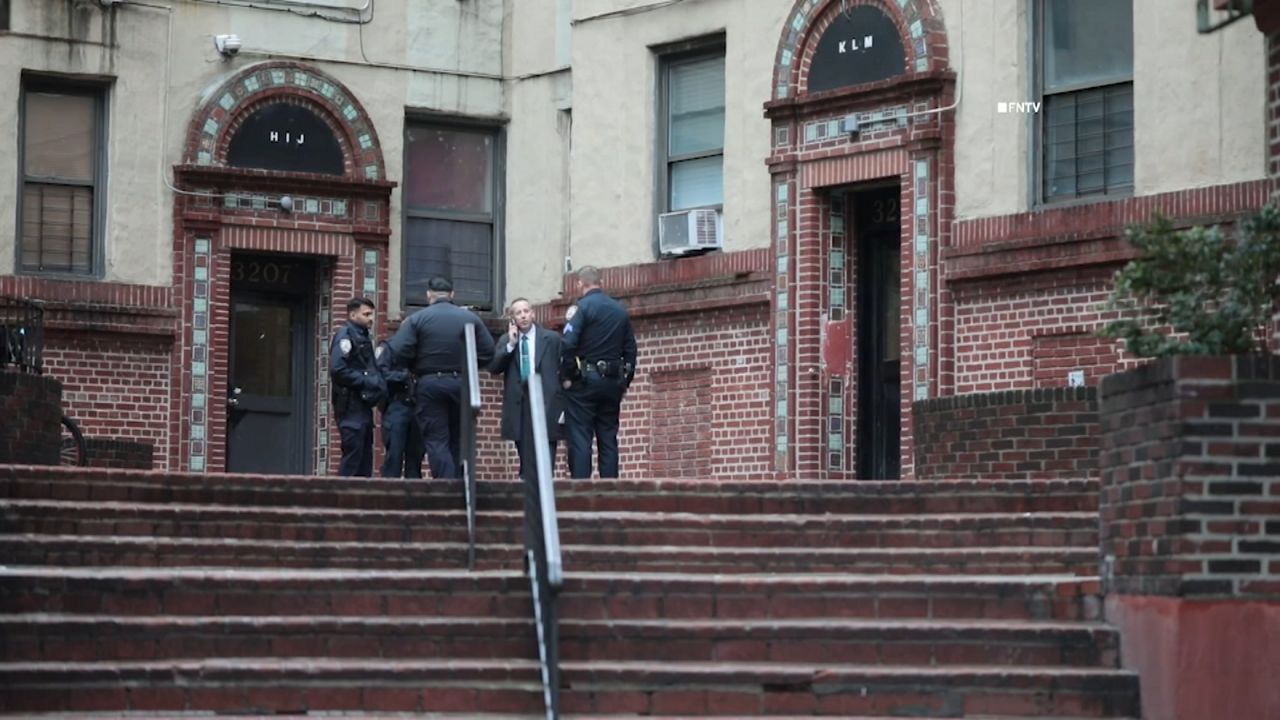NEW YORK — Millions of young children and teenagers are on social media, but it's not all fun and games. It can be deadly serious if users are not careful, experts say.
Predators have mastered the art of disguising themselves and luring children into their web, activists say, and sites such as Instagram and TikTok are popular hunting grounds.
Sarah Cooper would know: She was groomed online and abducted by someone she thought she knew.
“I didn’t want to listen to my mom, didn’t want to listen to my dad,” said Cooper, a human trafficking survivor who disclosed her identity to NY1. “There are a few warning signs that stick out to me more than others … The biggest one is alienation."
Cooper said in 2014, when she was in her mid-teens, she was feeling alienated and began communicating with a predator on Facebook, and later abducted and sex trafficked for nearly two weeks. She was able to get away, and now, at the age of 24, works with anti-trafficking groups like ECPAT-USA to warn others.
"It’s unfortunate to have to say this, but a lot of times predators prey on people who are vulnerable,” Cooper said. “A lot of the time it is because you have experienced adversity or have gone through something traumatic. They know how to hone in and pick that up.”
Predators targeting — and in many cases abducting — children via social media is so prevalent in the United States that last month dozens of attorneys general sent a letter to Facebook, which owns Instagram, discouraging the company from creating an Instagram for young children. In part, the letter said, “Facebook has historically failed to protect the welfare of children on its platforms.”
In response, Facebook points to a blog that spells out how they are “continuing to make Instagram safer for the youngest members of [its] community.”
The National Center for Missing & Exploited Children said reports of online enticement of young people skyrocketed nearly 100% last year. The nonprofit defines online enticement as “an individual communicating with someone believed to be a child via the internet with the intent to commit a sexual offense or abduction.
Queens District Attorney Melinda Katz established a human trafficking bureau last year to address the alarming spike in sex trafficking, especially among children. She described a horrific case just a few weeks ago:
“We indicted two men. They were trafficking teenage girls,” Katz said. “The two indictments charged these men with trafficking a total of three teenage girls — 13-, 14- and 15-year-old girls.”
“After plying them with drugs and alcohol, in one of the indictments, the men took nude photographs of the 13-, 14-year-old victims and posted them as an online prostitution advertisement indicating that they were for sale. Just outrageous on all ends,” Katz continued. “The defendants then forced the teens to meet with strangers for sex, and perform sex acts, and then they took the money for themselves.”
For nearly 30 years, ECPAT-USA has been fighting to end the sexual exploitation of children. Officials say the coronavirus pandemic made a bad situation worse because students spent even more time online learning remotely.
“Our reaction was to mount a campaign called ‘Safety Beyond Hand Washing’ because … safety for children is safety on the internet, safety from cat fishers," ECPAT-USA CEO Lori Cohen said.
Lynn Shaw, a producer and public relations specialist, also realized how vulnerable children were during the height of the pandemic. After representing an author who wrote about the trauma of abuse, Shaw said she began researching human trafficking. She then established “Lynn’s Warriors” last fall to help parents stay vigilant.
"You have to be committed as that parent, as the trusted adult, to put these filters on your child’s devices. It takes a lot of work and a lot of energy,” Shaw said. “We’ve got to beat the predators, and they’re winning right now. It’s up to us to be a warrior for our own children.”
Shaw warns parents about the threats predators make.
"The number one threat we see once a child has sent these sexually explicit images is, ‘If you don’t do more, I’m going to tell your parents,’” she said. “And that is what causes children to go down this slippery slope."
Cooper admits that she hid her social media conversations from her parents, something her mother, Lissette Cooper, deeply regrets.
"I never want to see another mom go through what I have been through, or another daughter go through … what Sarah went through," Lissette Cooper said.
The Coopers are now part of ECPAT’s Survivor’s Council. It’s a think-tank for those who have lived through the worst, and to share advice to protect children at risk.
"How predators win is because they survive in the dark,” Sarah Cooper said. “Once we shine that light on them, they can’t win anymore and you take your power back."
------
Did you know you can now watch, read and stay informed with NY1 wherever and whenever you want? Get the new Spectrum News app here.








